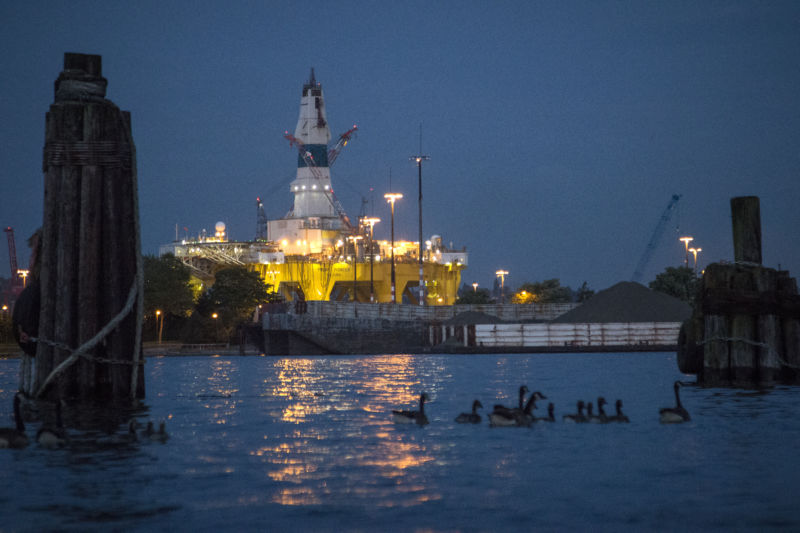
In an interview with the Wall Street Journal this week, the Department of the Interior’s new secretary, David Bernhardt, said that the Trump administration would indefinitely suspend its plans to expand offshore oil drilling in the Arctic and several areas in the Atlantic ocean. The Secretary did not appear to comment on whether the administration would move forward with offshore drilling in areas outside of those regions.
The decision not to pursue lease sales in the Arctic and some areas of the Atlantic is a significant one for the Interior Department (DOI) and the Trump administration, which promised to roll back drilling moratoriums that the Obama administration had imposed.
The plan to open up Arctic and Atlantic waters to offshore oil drilling hit a snag in late March, when a federal judge in Alaska ruled that the Trump administration could not open up federal waters to oil and gas extraction after the Obama administration closed those waters. The Obama administration relied on a 1953 law called the “Outer Continental Shelf Lands Act” (OCSLA) to close the waters to drilling. That law allows sitting presidents to close waters, but it says nothing about the president’s power to re-open waters. Originally, Congress opened the federal waters in question to lease sales, so the thought is that Congressional approval would be required again to reverse former President Obama’s closures.
With a politically divided Congress, the Trump administration would have an uphill battle to re-open previously closed waters in a way that would be consistent with the court’s ruling. Waters closed by the Obama administration exist in both the Arctic and the Atlantic.
Bernhardt told the WSJ that the DOI would appeal the ruling, but the appeals were “going to take a while.”
“By the time the court rules, that may be discombobulating to our plan,” the DOI secretary said. “What I can definitely say is, I’m not at a point now where it’s an imminent thing.”
Governors on the Pacific and Atlantic coasts have expressed their outrage at the federal government’s move to open up new areas to oil drilling. Significantly, Florida’s republican governor (now the state’s senator) secured assurance from the DOI’s former secretary, Ryan Zinke, that the tourism-heavy state would not be subject to offshore oil drilling operations.
This set off complaints from New Jersey and other states, which have demanded to know why Florida is permitted special treatment.
That bipartisan concern may also reflect why the new DOI secretary is reluctant to speed ahead with Trump’s plans to open offshore drilling in previously protected areas. Per the WSJ:
Friction with coastal states remains an issue, Mr. Bernhardt said in the interview. Federal law requires his department to consider input from local elected leaders in the five-year plans it sets to manage the waters of the outer continental shelf, which typically start close enough to the coast for rigs to be visible from shore and reach more than 200 miles out to sea. Mr. Bernhardt said he is still in the process of finding common ground with coastal governors.
A confounding factor is the relatively low price of oil, meaning that oil producers are looking for cheaper ways to extract crude oil. Offshore oil drilling is neither cheap nor easy, so demand for federal leases to drill may not be as robust as it has been in the past, especially in the challenging waters of the Arctic.
What about the other federal waters?
Still, there may be some room for the Trump administration to move forward with offshore oil drilling in previously undeveloped water. In the WSJ interview, Bernhardt doesn’t directly address West Coast waters and other waters that do not have the same Obama-era moratorium protections.
States have limited tools to fight back against offshore drilling that takes place just outside of state jurisdiction but close enough that drilling companies need coastal support bases within that state. One of those tools is called the Coastal Zone Management Act, and the Los Angeles Times reported in March that the Commerce Department’s National Oceanic and Atmospheric Administration was quietly taking public comment on ways to “streamline” the state review process granted under the act.
The LA Times wrote that the Commerce Department sought “greater efficiency and predictability” for the oil and gas industry through a Coastal Zone Management Act reform.
https://arstechnica.com/?p=1496581

